Victoria Falls, Zimbabwe, July 27, 2025—On the sidelines of the 15th Meeting of the Conference of the Contracting Parties to the Ramsar Convention on Wetlands (COP15) , the International Mangrove Center (IMC), together with the National Forestry and Grassland Administration of China, the Ministry of Environment of Cambodia, the Ministry of Environment and Sustainable Development of Madagascar, and the Ministry of Climate Change and Environment of the United Arab Emirates, co-hosted the thematic side event titled “Accelerating Global Action for Mangrove and Wetland Conservation: Science, Partnerships, and SDG Implementation.”
The event brought together representatives from international organizations and national agencies, including the World Wide Fund for Nature (WWF), the International Union for Conservation of Nature (IUCN), and the Mangrove Conservation Foundation (MCF), who shared insights and experiences on mangrove conservation. Participants emphasized the need to foster scientific innovation and community engagement to address the growing crisis of mangrove and wetland degradation, and to accelerate progress toward achieving the Sustainable Development Goals (SDGs).
Prof. Bao Daming, Director General of the Interim Secretariat of IMC, opened the session by outlining IMC’s background, mission, and objectives. He noted that IMC serves as a vital platform for coordinated global efforts on mangrove conservation, wise and sustainable use, and international collaboration, which significantly contributes to helping member states fulfill their obligations under the Ramsar Convention.
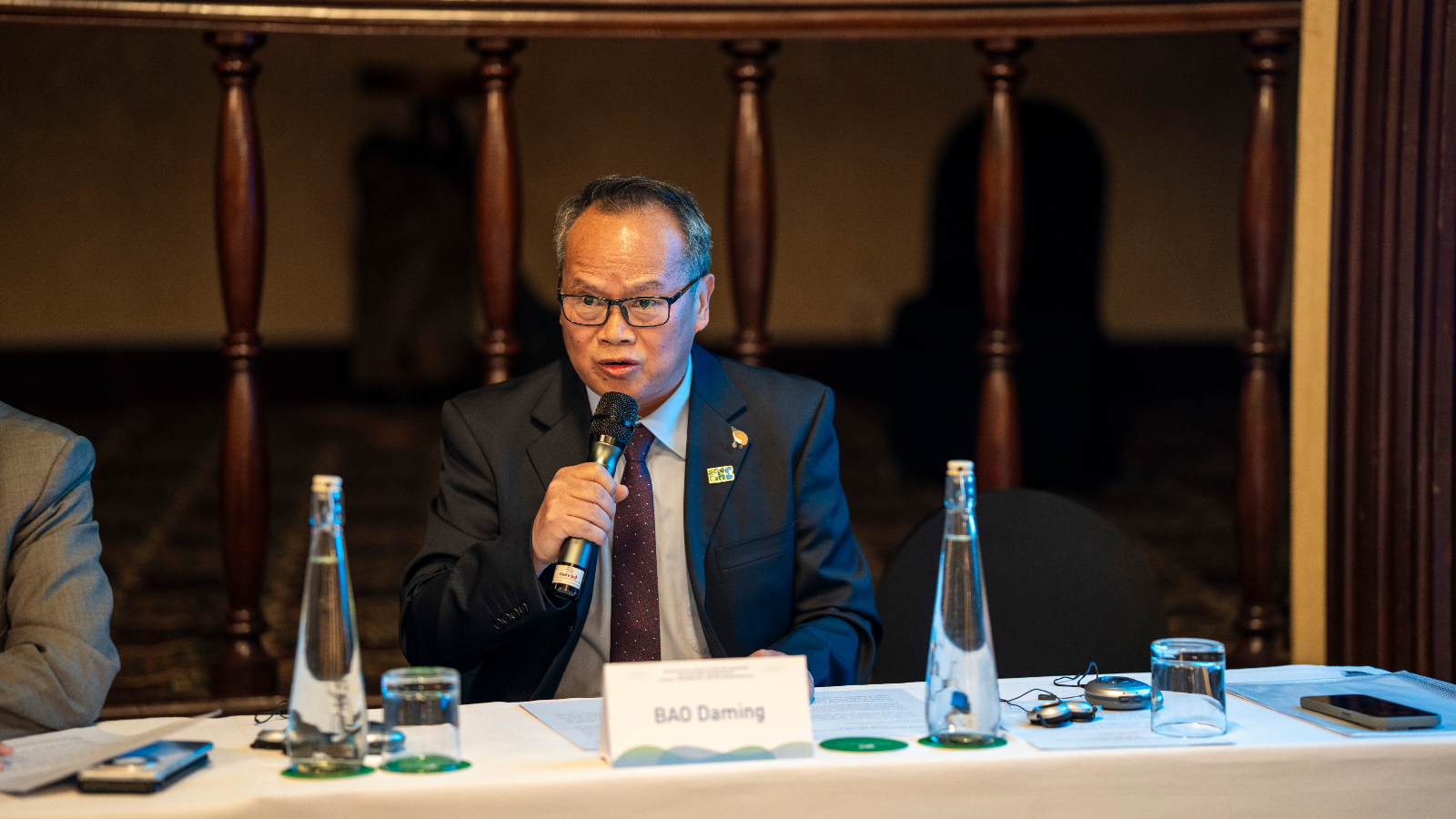
Prof. Bao Daming, Director General of the Interim Secretariat of IMC
The Director General from the Department of International Cooperation at National Forestry and Grassland Administration of China presented China’s commitment in advancing global wetland and mangrove conservation, including its leadership in establishing IMC. In recent years, China has deepened international cooperation in wetland conservation through a range of practical initiatives. Over the past five years, China has hosted 311 wetland officials and managers from 41 countries, sharing its “lucid waters and lush mountains” development philosophy and expertise in wetland conservation and restoration management with the global community. Since 2022, China has implemented the Lancang-Mekong River Basin Wetland Sustainable Management Project and supported wetland-related initiatives in Myanmar and Vietnam through the Asia-Pacific Network for Sustainable Forest Management and Rehabilitation (APFNet), with a cumulative investment of over USD 1.1 million, improving wetland ecosystems across Southeast Asia.
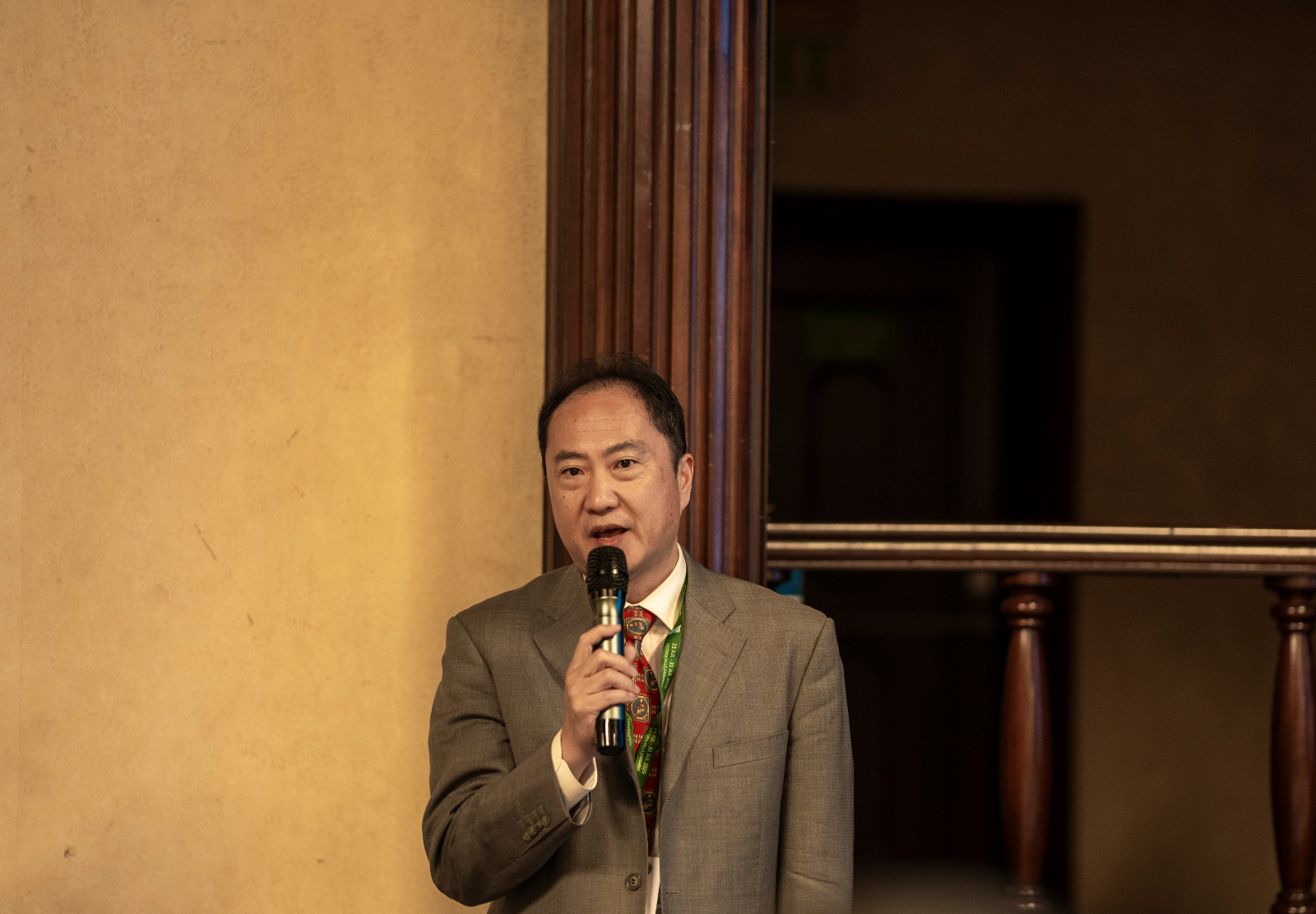
The Director General from the Department of International Cooperation at National Forestry and Grassland Administration of China
Ms. Christine Colvin, Freshwater Policy Lead at WWF International, shared experiences in strengthening international cooperation, highlighted the progress and 2030 targets of the Global Mangrove Alliance (GMA), and presented its community-based collaboration models. Founded in 2017 by WWF and partners, GMA now includes over 100 members. Its 2030 goals include zero net loss of mangroves, doubling mangrove protection, and restoring at least 50% of restorable mangrove areas. Ms. Colvin also introduced field projects in Belize and the Indus Delta, and presented the “Freshwater Challenge” — an ambitious global initiative aiming to restore 300,000 kilometers of degraded rivers and 350 million hectares of wetlands by 2030, while safeguarding remaining healthy freshwater ecosystems.
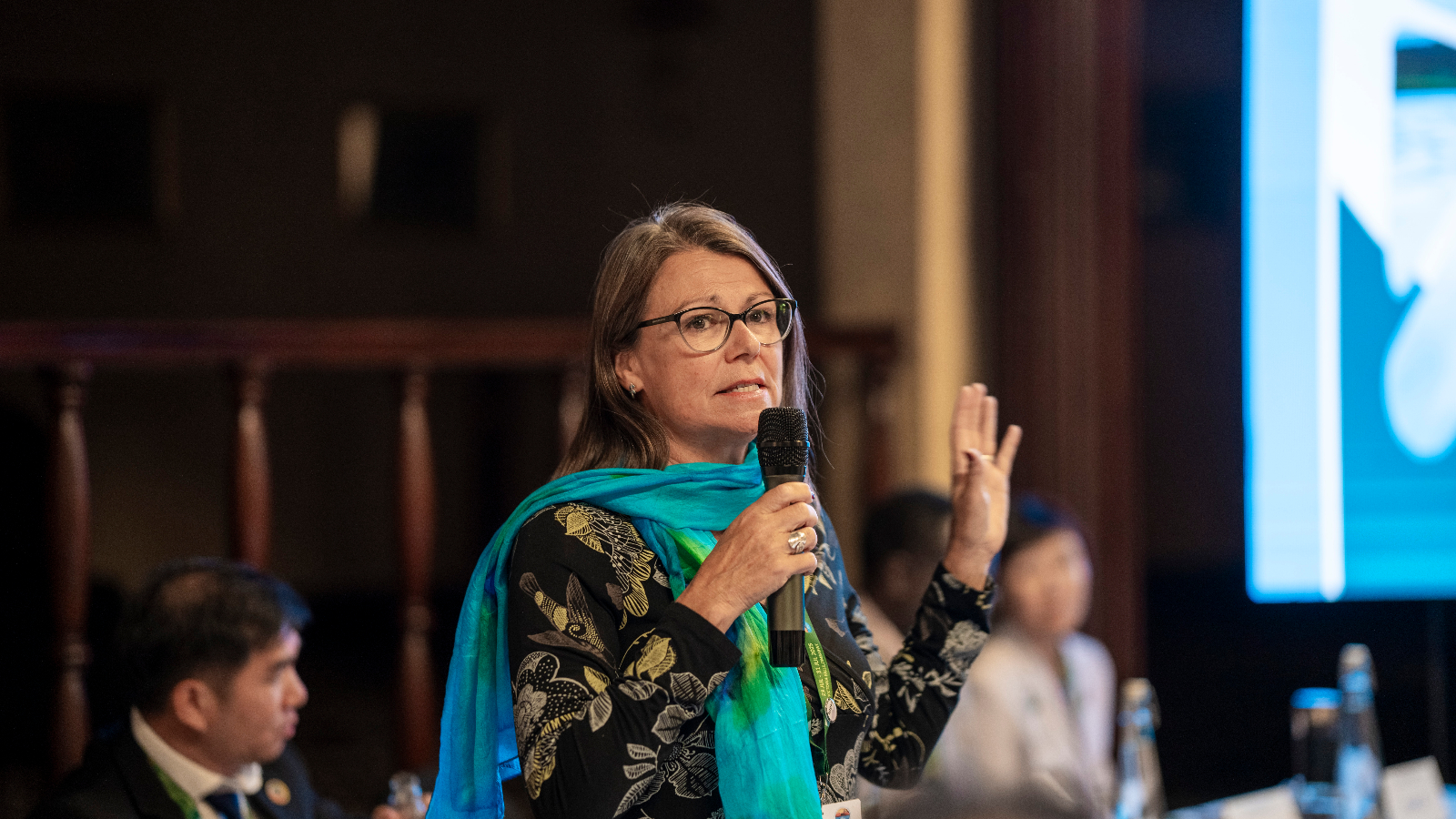
Ms. Christine Colvin, Freshwater Policy Lead at WWF International
Mr. Luther Bois Anukur, Regional Director for Eastern and Southern Africa at IUCN, provided an overview of the IUCN Red List of Ecosystems as a global standard for assessing ecosystem collapse risks. He warned of mounting pressures on mangroves from sea-level rise, extreme weather, and oil and gas development. He underlined IUCN’s commitment to unified assessment methodologies, knowledge sharing, and participation in initiatives such as the “Great Blue Wall,” particularly in restoration collaborations in the Western Indian Ocean region.
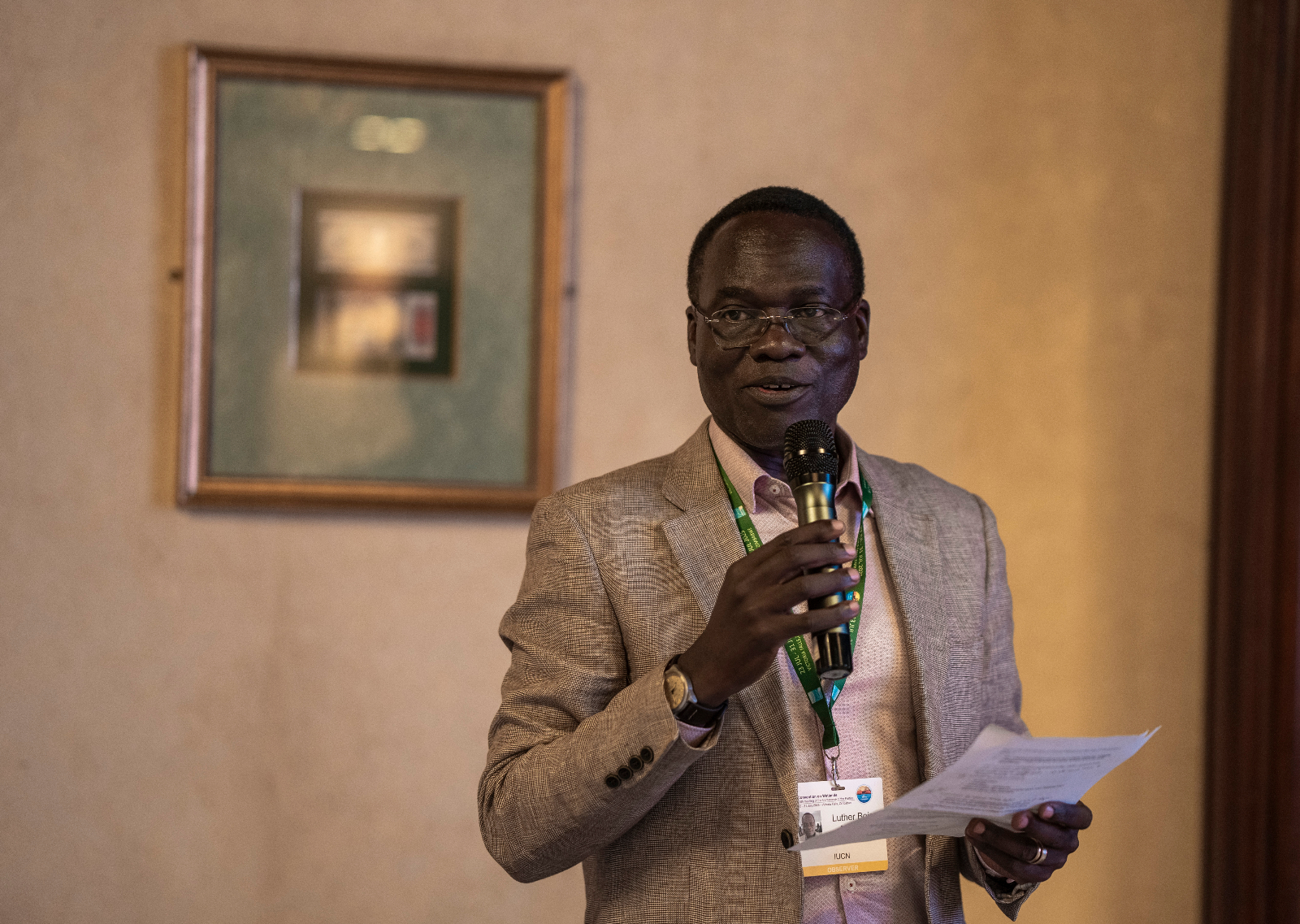
Mr. Luther Bois Anukur, Regional Director for Eastern and Southern Africa at IUCN
Ms. Sun Lili, Co-Founder of the Mangrove Conservation Foundation (MCF), showcased MCF’s decade-long efforts in mobilizing communities and the private sector. Over the past decade, MCF has helped conserve more than 8,200 hectares of mangroves and wetlands at sites such as Shenzhen’s Futian Mangrove Eco Park, with support from more than 100 corporate partners, raising over CNY 300 million and engaging over 2,600 volunteers in nearly 100,000 service hours. She also highlighted MCF’s work in establishing the Spoon-billed Sandpiper Alliance for endangered migratory bird conservation.
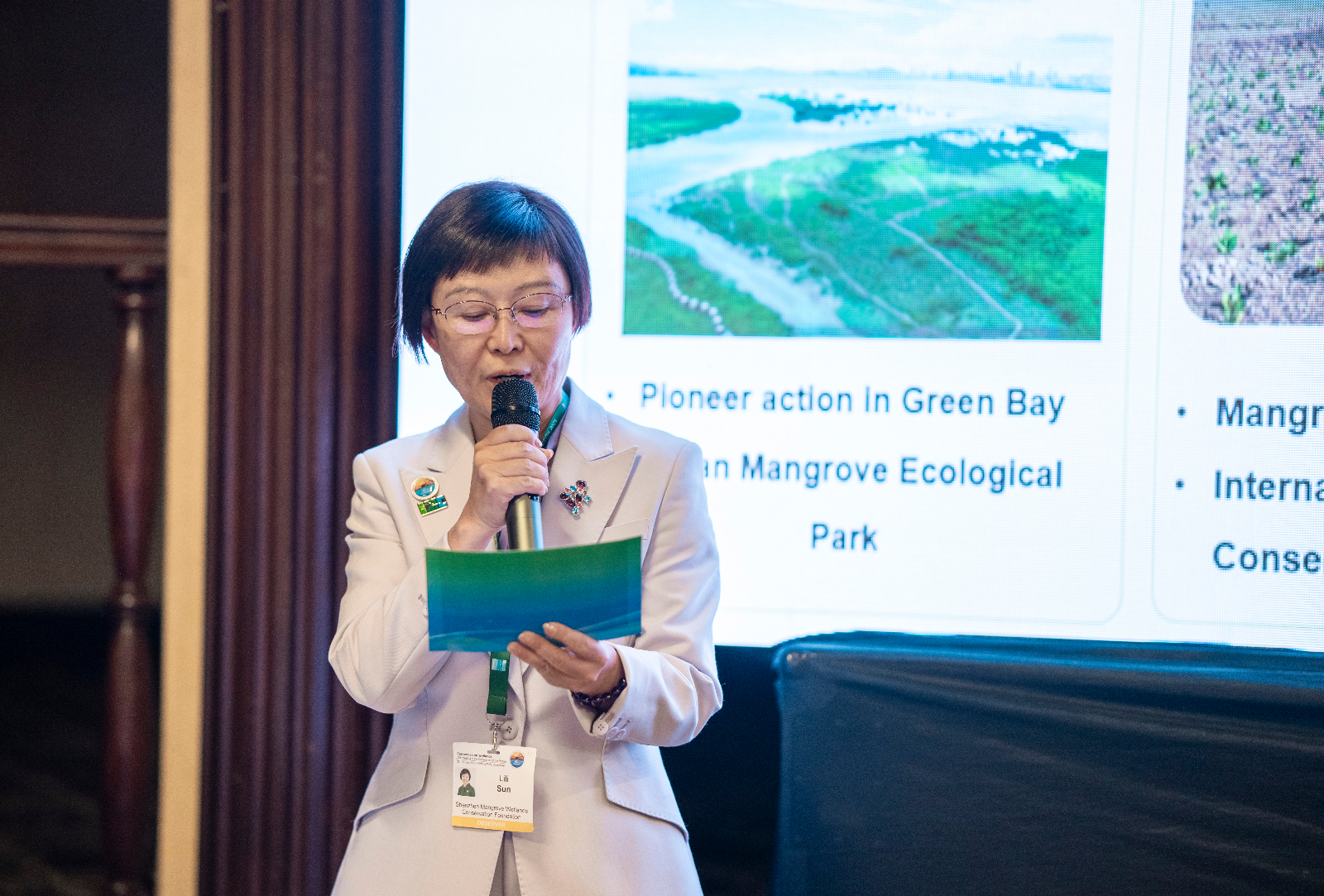
Ms. Sun Lili, Co-Founder of the Mangrove Conservation Foundation (MCF)
In a session led by the UAE Ministry of Climate Change and Environment’s Marine Biodiversity Section, experts from the UAE, Panama, Australia, and Kuwait explored the Mangrove Alliance for Climate (MAC) and its contributions to SDG Indicator 6.6.1, which tracks the extent of water-related ecosystems. Discussions focused on the role of mangroves in supporting water cycle regulation, pollution reduction, and ecosystem-based adaptation.
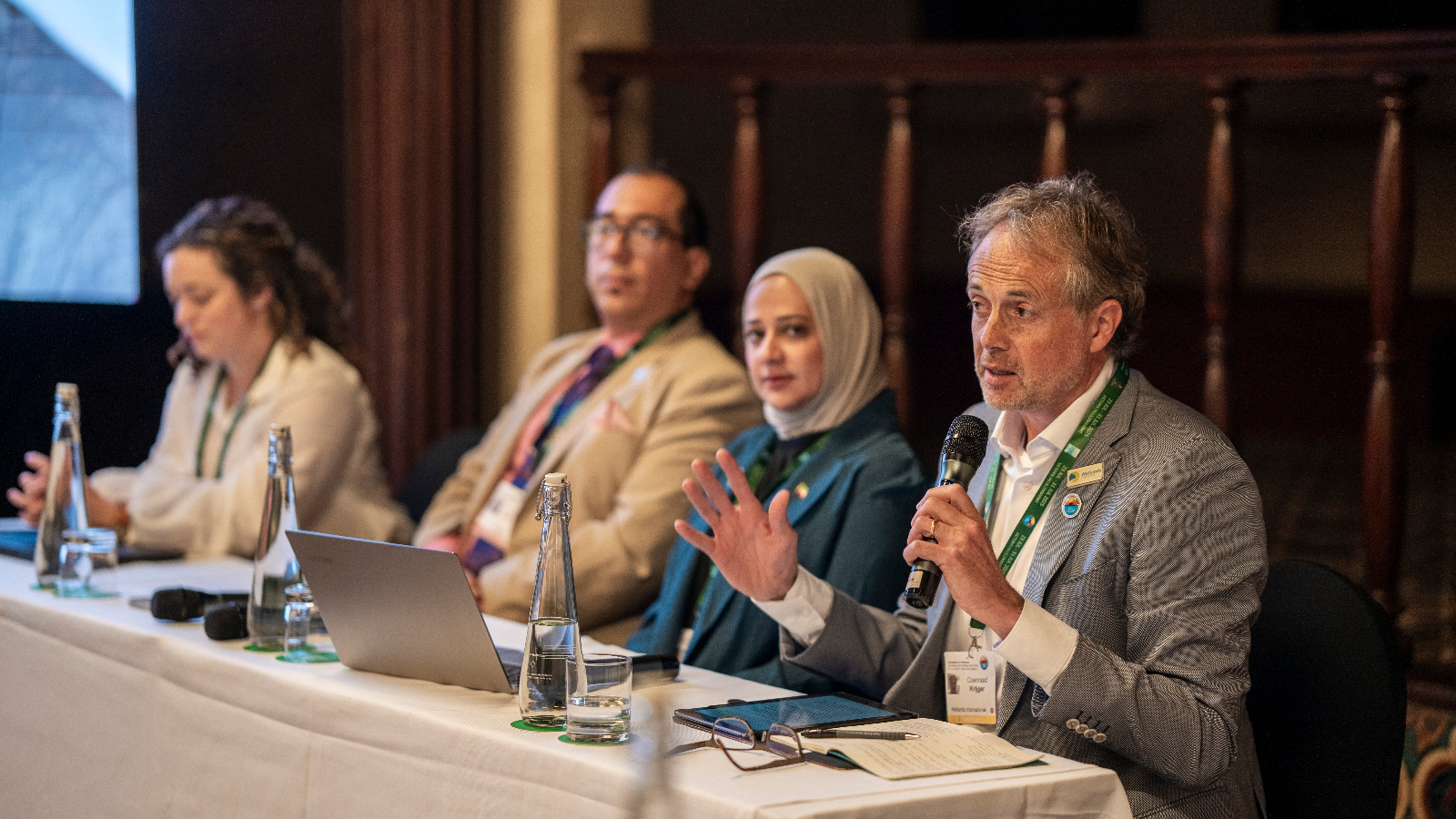
Experts from the UAE, Panama, Australia, and Kuwait
Co-supported by the China Wetlands Association, IUCN, MAC, MCF, and WWF, this side event successfully fostered international dialogue and cooperation. It produced valuable policy insights and pathways for achieving the SDGs, while showcasing innovative practices for mangrove and wetland conservation worldwide.